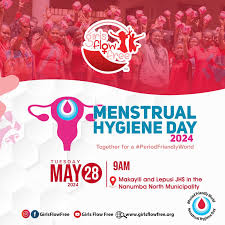Understanding Menstrual Hygiene Day: Significance and Initiatives

What is Menstrual Hygiene Day?
Menstrual Hygiene Day, observed on May 28 each year, aims to raise awareness about the importance of menstrual hygiene management (MHM) for women and girls worldwide. The day emphasizes the need for education and access to proper sanitation facilities to ensure women can manage their periods safely and with dignity. This year’s focus is on breaking the stigma surrounding menstruation and promoting open discussions about it.
Current Context and Events
In 2023, various organizations, NGOs, and community groups organized events and campaigns to mark Menstrual Hygiene Day across India. Schools have taken the initiative to educate young girls about menstrual health and hygiene, while health experts have conducted workshops explaining the biological aspects of menstruation, as well as the importance of using clean menstrual products. The launch of innovative products like biodegradable sanitary napkins and menstrual cups has been one of the highlights this year, focusing on sustainable menstruation practices.
Furthermore, alarming statistics highlight the challenges women face related to menstrual hygiene. According to a survey conducted by WaterAid last year, nearly 88% of women in India do not have access to safe menstrual hygiene products, exacerbating health issues and affecting their education and employment opportunities. This also emphasizes the pressing need for infrastructure improvements and public awareness.
Importance of Menstrual Hygiene
Good menstrual hygiene practices are crucial for the health and wellbeing of women. Poor menstrual hygiene can lead to a variety of health issues, including urinary tract infections (UTIs) and reproductive tract infections (RTIs). Menstrual Hygiene Day serves as a reminder that effective management of menstruation is a key aspect of women’s health and rights.
Moreover, breaking the taboo around menstruation can help foster an environment where young girls feel empowered to discuss their needs and seek help. By doing so, societies can contribute to gender equality and improve health outcomes for women and girls globally.
Conclusion: Forward-Looking Measures
As we observe Menstrual Hygiene Day, it becomes vital for communities and governments to continue investing in menstrual health management programs. Awareness, education, and dialogue can significantly mitigate the stigma associated with menstruation. Moving forward, regular health campaigns, better distribution of sanitary products, and improved sanitation facilities in schools and communities can pave the way for a healthier future for women everywhere. Through collective efforts, we can make strides towards ending period poverty and ensuring menstrual dignity for all.








